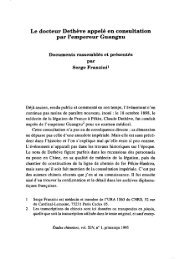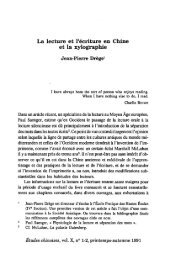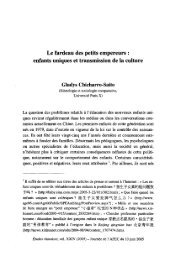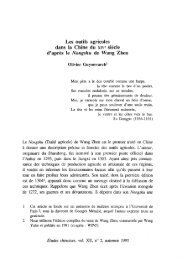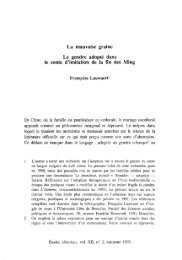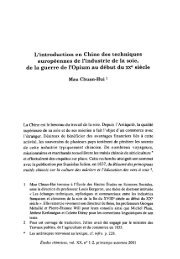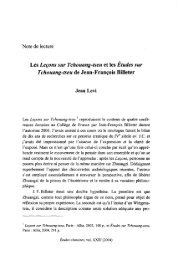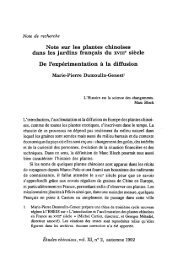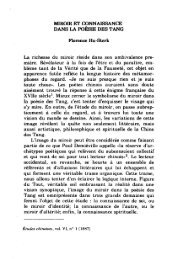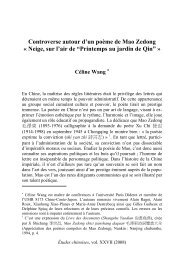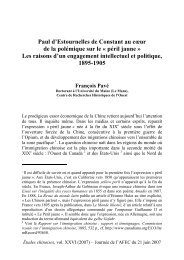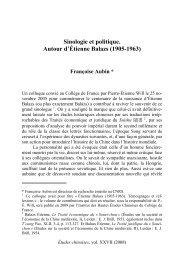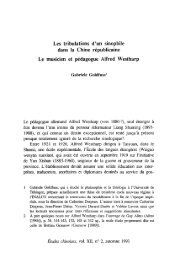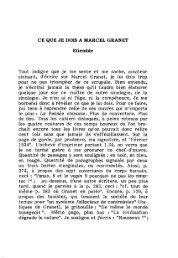Create successful ePaper yourself
Turn your PDF publications into a flip-book with our unique Google optimized e-Paper software.
Comptes rendus<br />
ors on female chastity. She sees the chastity cuit as a central part of their<br />
"civilizing project" and quotes Qianlong as chiding officiais for not recognizing<br />
the evil caused by illicit sex and not probing deeply enough to<br />
uncover the multitude of cases where the woman was as guilty as the man.<br />
One of Theiss's goals is to move away from a view of the Chinese<br />
gender System as stable toward one in which we see fractures and tensions.<br />
Women and their families had différent stakes in chastity-centered virtue,<br />
something especially clear in incest cases. The meaning of norms was<br />
never fixed, but rather was negotiated through processes that involved<br />
both state efforts to define and enforce policy and the actions of both local<br />
élites and ordinary families pursuing their own ends. Theiss argues that<br />
although the state desired to impose uniform gender norms, its laws were<br />
fraught with contradictions and their application involved compromises<br />
with élite values and popular mores, notably women's own views of virtue.<br />
Policy makers assumed that promoting chastity would bolster proper<br />
family hierarchy, but officiais not uncommonly had to défend virtuous<br />
widows from the déprédations of lineage and family authorities.<br />
Like Matthew Sommer, Theiss makes considérable use of archivai<br />
case material, drawing from it not merely officiai's views, but also<br />
évidence of ordinary people's thoughts and actions. Theiss makes the<br />
point that ordinary rural families could rarely maintain strict physical<br />
séparation between men and women. Women who worked in the fields<br />
had to walk past men. Women whose husbands were away had to handle<br />
routine business with neighbors, relatives, and merchants. A funeral could<br />
resuit in the men in the house going away for a few days, leaving a woman<br />
and her small children alone. Judges needed to understand thèse situations,<br />
since they evaluated the seriousness of a crime against chastity according<br />
to their assessment of the woman's intention to live a chaste life. Women<br />
who had to corne into contact with men could achieve sufficient séparation<br />
by their attitude and demeanor.<br />
Theiss's study is particularly rich in its exploration of what she appropriately<br />
calls by the modem term sexual harassment. She notes that<br />
between 1733 and the end of the Qianlong reign fifteen substatutes were<br />
appended to the statute on causing another's suicide to deal with such<br />
483



